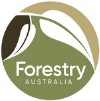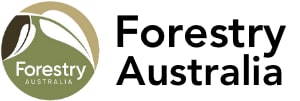
MEDIA RELEASE
Wednesday 20 July 2022
Australia’s forest scientists call for active and adaptive forest management in wake of RFA review
Following the release, the Victorian Regional Forest Agreements (RFA) – Major Event Review of the 2019- 2020 bushfires, the peak national organisation representing over 1,000 forest scientists, professionals and growers have called for active and adaptive forest management to be implemented as a matter of urgency.
President of Forestry Australia, Bob Gordon said the organisation has been calling on all governments to prioritise and invest in a year-round active and adaptive management approach to forest management, regardless of tenure.
“Given this, we are heartened to see the report recognises that there is a strong case to be made for further refinement and better integration of Victoria’s forest, national park and fire management planning strategies,” Mr Gordon said.
Under this approach, Mr Gordon said active and adaptive management of forests would address the decline in forest resilience, improve the protection of rural and regional communities and ensure that both Traditional Owner interests and environmental values are adequately managed and supported.
“It is clear to Forestry Australia that the 2019 -2020 bushfires have highlighted the need for greater adoption of active and adaptive forest management practices which requires developing new perspectives on the gathering of science and data as well as moving away from ‘issues-based’ and ‘reactive’ approach to a ‘landscape forest systems’ approach,” Mr Gordon said.
“This new approach and subsequent actions need to be evidence-based, with required actions to include researching, monitoring, promoting, and supporting forest health and biodiversity; more strategic fuel management interventions including the use of prescribed fire; intervention to manage pests and diseases as well as collaborating with Traditional Owners who care for their country, are all aspects that need attention.
Mr Gordon highlighted that as more country is set aside for passive conservation and consequently receives no active land management, more devastating fires are inevitable.
“Our members work in forest, parks and water catchment management, so are pleased that the report noted that forest managers and timber industry employees were important players in fire response, protecting lives, housing and infrastructure and have used their experience to assist recovery operations after fires.
“It was heartening to see Traditional Owners expressed interest in being empowered to care for country but raised concerns that since colonisation, country has become broken and sick, for which Forestry Australia agrees.
“Also noted in the report, the increasing occurrence of bushfires is resulting in a reduction of timber plantations which reduces the local timber available and increases costs for the building industry.
“It is anticipated that the 2019/2020 bushfires will continue to impact wood supply and therefore broader society for the next 15 -20 years.
“However, we are concerned the review identified that the Victorian Forestry Plan contains no information or strategies as to how Victoria’s native forests will be managed over the next 30 years; does not address the full range of forest values covered under the modernised RFAs or provide clear direction on how Victoria intends to meet the RFA commitments to implement active management,” Mr Gordon said.
It is also concerning to note:
- In Victoria, approximately 1.5 million hectares was burnt, including around 1.3 million hectares, or 18% of Victoria’s total public native forest estate (national parks, state forests and all crown land)
- The fires acutely affected individuals, communities, businesses, infrastructure, plants, animals, and forest ecosystems.
- Bushfires are having a significant impact on old growth forests with approximately 60 per cent of Victoria’s old growth forests have been lost, predominantly as a result of severe bushfires, since 2000, including another 60,000-ha lost over the 2019/2020 bushfires
- There was concern that small ecological vegetation classes could have been severely impacted by intense fire, but there are inadequate resources to understand the impacts
- The frequent exposure to intense bushfires is presenting a major and increasing threat to the effective operation of Victoria’s RFAs, to the stability of the forests and the achievement of ecologically sustainable forest management for our parks, forests, and reserves
- Some of Victoria’s Traditional Owner cultural heritage sites have been impacted but lack of resourcing means that these impacts have not been quantified
- As a result of the fires, Victoria suffered its biggest loss of forest recreation assets (walking trails, cabin sites, bridges)
Dr Tony Bartlett AFSM, a member of the Review Panel will be speaking about the Review at Forestry Australia’s 2022 Symposium in Albury:
https://www.forestryconference.com.au/
The Report can be found here:
https://www.delwp.vic.gov.au/futureforests/what-were-doing/the-major-event-review-of-regional-forest-agreements
Forestry Australia’s submission to the review can be found here:
https://www.forestry.org.au/wp-content/uploads/2021/10/Major-Event-Submmission.pdf
Media contact:
Becher Townshend
Font PR
0418 370 661
bechert@fontpr.com.au

